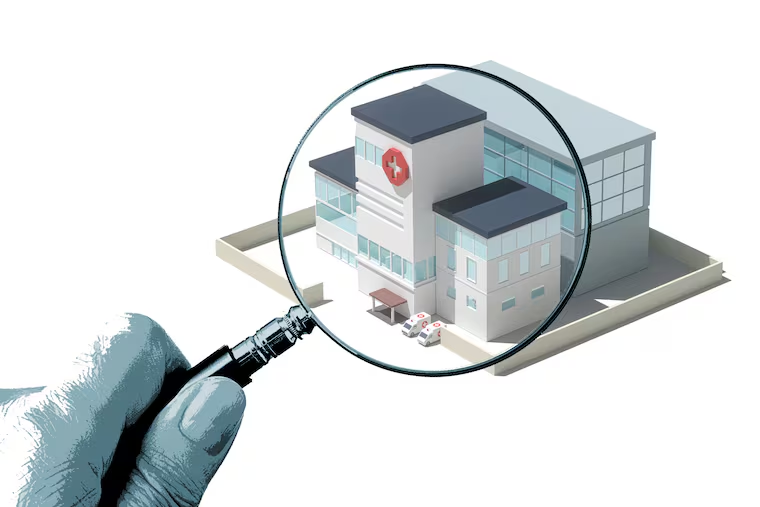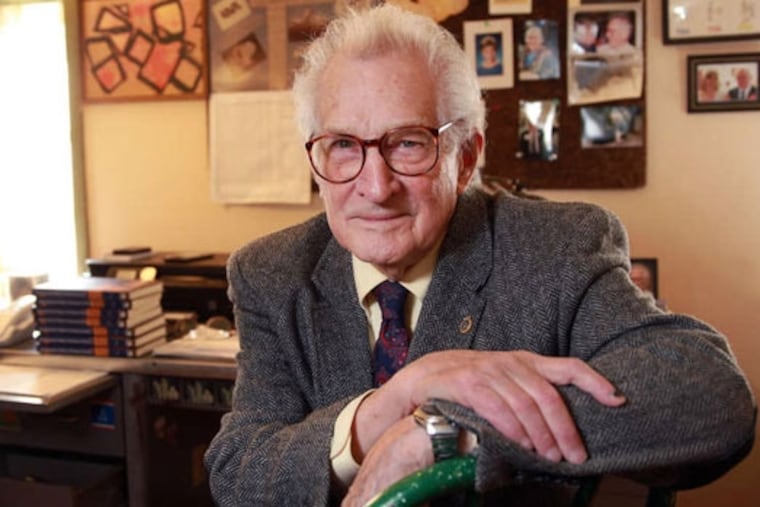Skip to contentJoanna Fong-Isariyawongse, The Conversation
Barry J. Jacobs and Julia L. Mayer, For The Inquirer
Joanna Fong-Isariyawongse, The Conversation
Joanna Fong-Isariyawongse, The Conversation
Barry J. Jacobs and Julia L. Mayer, For The Inquirer
John Lin and Jalpa Doshi, For The Inquirer
BriarRose Edwins and Hayley Goldner, For The Inquirer
Layla Bouzoubaa, The Conversation
Marcia Dunn, Associated Press
Adela Suliman and Kasha Patel, Washington Post
Marcia Dunn, Associated Press
Adela Suliman and Kasha Patel, Washington Post
Noah Robertson, Tara Copp, and Ellen Nakashima, Washington Post
David Ovalle and Cate Cadell, Washington Post
Geoff Mulvihill, Associated Press
Noah Robertson, Tara Copp, and Ellen Nakashima, Washington Post
David Ovalle and Cate Cadell, Washington Post
Geoff Mulvihill, Associated Press
{"ENV":"a3BdXloyeAFrBVZPdiFkA3xzfEBgHHBNfHNaCg==","CONTENT_BASE_PROD":"aARaB1tUY1h8b3QEdFVWA3xwYE9gHGAHf3N0BnQydAF/c2BAdDJnWH9jVkBjMnBNf2NVXnQic19rY1JPdyJ0BnxwZAdgHHQBf3NdW3cLbE1/cGQGdAx8T3wFfAR0MWAEaGNVX3dUb18=","ARC_ACCESS_TOKEN_PROD":"U1l/T1shBAZQcEleXCFsA3xjVk9gMnQHfGNWBXYyZ1x8XXRPdxx3X3xjZE92InNff2NkB2Myc158BXRNdBx7WXxzc1p0IntcfAVkQHQcdE98YHhOdCFgBXxNeE50MntffHBrWncidE18cGdbdCJ0TXxdVVtgDHdfa2NWQHQycAV8Y11bdxx/WXxjc1p3InNca2B4T2MycAV8c1ZOdiJ0BHxgYEB3C29ea2NnW3YhYE1rYHtaYDFvWGtgZEBjMnNea2N7WnQif1x8Y2NbdFRgBg==","GRAPHQL_KEY":"aFlwAlsIUUx/Y1kHWAsFA3xdcEB2MlFYfE10BXQhbAd/WmAHYzJ7XXxdfAZ3DHtYf2N3XnYieAdrXVJOdjJnX2hafEB3InwFfHNoQHYicAFoWnhAYyFgB3xzeEB0VHwAfGBoQHcBCAg=","GATEWAY_URL":"UmAJAl0cZAZQc2tEWFRwA39gYEB2ImAGfGBkB3YyZ158c3QHYBxzWWtgfE9jInQGfF1kQGMMdAF/c3QHYyFgBX9zeAZ0MWAGfE1/WmAxYAZoXWtbYwt8TQ==","GATEWAY_SLS_URL":"fmN7TVghYwN/f1oFXDJSA3xjZAZ3MnNefHN0T3YidEJ/YGBAdBxkBWtaZAd3ImdYf01WB3cycAZ8Y3BAdCF8AXxwYEBgC2wEf1p3XnQLf11rWn9adCFgQg==","FEEDS_URL":"aF1kB3QMfE1VcF1PYwxaBWtgeAZ3MXgEaE1jWnciXk1oY3dddCJSTXxzdE13IWAGfHNjX3cicEJrXXAHYzJvWH9wZEB0HHwHf11jXmALYAVrXWgHYwx3WX5zf1t0DHhMf2NrWmAyZ11rYHdeYDJgTX9ADAo=","RESIZER_KEY":"VW93Ql0ydAZTYGsFd1RaA39zdE1gMnAHfGNSTXYid158TWhNdwx4AH9jdEB0Mn9efHNwTWAcZ11oXXQGYFRgQnxaZEB3In9fa2BgTWMMdE9rY1JOd1RwQmhjZE50MWNYa1poBnQ3CAg=","GOOGLEANALYTICS_ID":"Um9ZRVwhXQZVWV5NdyJaBX9zZ1p3MnhPfnNwTXcidAVoY2AHdCJeTWhdf1x0DHgI","TWITTER_API_TOKEN":"fHBSBFohZ0NUc39CXQt4B35da190DGQHaGN4A3Qhb1loTXdcdzFwTH9NdEB0HHtcf11SQHQMVgd+cGhAdDFkT3xga153IWRMfHN8QGMxb1x+Y2ROdDJeBn5gZEB3ImBCaAVoQHcyWVloWmgCdFR/XHxgeAJjC2NcaGN3XmMyY19rYGRNdwxSQn9dc1tjMn9daAV4T2MxcAVrY3QCYBx/WH9aY192MmxNa3B8B2MxZ1xoXWNfYzFgAGhaZANjImNffmBkTXYye19/WmtdYwxvXXxdYAJjC2ddfnNzW3QxZ158WmNdYDJZWGgFZ1xjDFFdfGNnX2MMdAF8cGdcYDJ7WHxwY15gMXhNaAVgBmAcb11+Y1pOYFR4AHwFYAR0MWNff3BgBnYyZ19/cHwGYFRsAH5geE5jImQBfFpjWg==","GOOGLE_CLIENT_EMAIL":"VV1jXXQxcwR/XVlNdC5wA3xjVgZ0MnRNfGBoB3cMc1x/cGgHYyJzXH9zdE9jInNef01gT3YiZ1hrY3xAdFR/WH9wZAdjIlFZfHB3WnQcVkx8WnQFdBx/XHwFZ15jIm9cfAV3XmALb15rXX9fd1RvXX9NZ1t3C29cf2BnXncLYExoY2NbYwx8Bmhae110Im9da1p7XHYxcEx/XXxOYAxeQmtwdAo=","GOOGLE_PRIVATE_KEY":"f1l8QFshUQNVXXdGXCJaT2tdZAd0InQFf010AncyYE18TVVfdFRwBWhNaAV0C2xNfF18TnRUcE1+c3QGdCFkT3xNeAV0MnQFaE1ST3QLbEx8Y2AGdzJgB3xaZ110MXwFfmBoB2AMZEJ/WmtadCJ4BWhja190HFFZfF1nWnQyUVx8cHwHdzJeTWtgZANgMnRNfGNwBHchfEJrY2hNYwxWT35zfAN0MlIAfGNwT2MMZAV/c3NbYAxZXmtaYE9gHHdffGNdX3RUf1h/BWhNYBx0AX9wZ19jIWdZa3N8AmMMfE1rcHwGdjJnWX9we11jDHxCfHB/WmAcd1x/cGhAYFRgAGtaYE92IXtYa3B4TmAMe1x/WmgCYDJdWH9jZE1jIWABfwV7XmBUZ15rWnwDdjJZWH5gYE1jMl4AfF1WQGMMXgF/BXQCYDJ/XmhaYE92MmNcf01WBXYybAF8cHteYBxWAH9wfAZ0VGRMaF1wTXQcbEJ8Y3QEdBxsTX9ddANgDGNZaGNwB3dUbE9+c3AEdAxdWXxNe110ImdcfHNkTnQhf1x8Y3RPYAxsT3xjdANjMnxPaGNjW3QyUVhoXWAHYwx3XGtzc193MWNZaFprWnchZE9/WmACdyJnWXxjVV90HGNZfmNzWmMhZAd8c3dcYzJdXXxaZ192MmdYfHBoB3cidEJrcHRNYyFjWH5ge19gHGwBfmN0BmMicEJoBWBOYAtvX3xwZ192Im9ea1p0BmMLZE9/YGAEYzJnXX5wfANgC3AAa3B4AncyY15+YHdeYAtvXHxzWV5jImNffmBoBWALYAB8YGtcYwxjX35wdAd2Im9YfmB/WmMyc1lrYGQGdiFvX3xad150IllYfAVjXGAyd158c11fdiFzXn5jVgZgHHwBfE1dXnYhe118BXgGYFR/XGtwYE9gC2QAfF14B3QhfE1rXXgCdCJWQn9NYAJ3Ml4EaF10AnQiYAd8c2gFdCF8BmhjcE93InRNa3N3X3QMXkJ8TWBNdDJWTH9zVV5jDGQFf2N4TnQMbEJ+Y3Nfdwx8TWtde153MXBMaF1wT3QiXVl+cGRAdAxdXGtzd1t0IngHfnN0A3cMVk98YGgFdCJ7WXxzXVtjDHNYfGNjXmMiY1xrWn9ddDJST3xwYAR2MXNfaAVnWnYiUV9/TVZPYBxeQmtwZANjMmdcf110TmMMdAB/WngCdwt7X3xwZAZjDGNZf3NWBmBUfEJ/Y1lcYyJSAX5gYE5gHHdZf3BkAmALY1h8cGtcYwx7Xn5gdARgMW9Ya11dX3QiUV18cHhPYzJvWWtgY152MWNcf3B8BWAMZ19oYHQDdiFvXHxaaE9jIXtca1p4BXYhf15oWmNeYwx7X3xgfARjMW9cfGBoQGAyeEJ8TXxAdFR4B39da1p0IlIHfE18AndUZExrc3AHdAxwB2tzYAd0C2BPfmNnXXRUeAd/BWQFdyJ4Qn9je113MnRCaGNzXWAyfEJ8XXAHdBxRWWhNeE50InddfF1wBXQLYAZoTXNfdwxSTX5waE5jDHNYf11aAnQiXV5oBXQHdAtgBGhgaAdjDHtea3BkTmAxY1loYH9fYAtkQn9jY11jC3xNa118QGMMZ1xoY3dbYwtvXXxwZARgDH9faFp0TmMMZ19/YHtdYBxwQnxjY19jDHQFa1poQGMyc1h8BWQDYDJzWX8FeE1gMXtZfAVoBWAcd1hrcGNddDJeAWhafE5jMWdZa1poTnYyXVhoXVYEYAtvXn5gaANgHG9ff3BgTWMxb1xoWnRPYAxnX39jWgdjDFIBaAV3XGAxZAB/XV1eYyJ/XmhaeANjImQAa2B8BnYyc1xoBXQHdCJWQmtjZE50MnQHaGNjXnQyUkx/YHgGdyFsB38FZ1t3MlZPf113XXciZE9oTXgGYAt/WHxNVV1jMWdZf3N0B3QMXVx8YGQDdDJgB2tdcE53MlFZa3BoB3QycEJ8TWAFdyFvWGhNWk10IXwFfmBrXWMxfE1/Y3RPYDF7WHxgZ153Im9YfnB0BXQybE9/BWhPYyJ/XWhaZAdjDHwAaFpoA3ccdEJ8BWdfdBx3WX9NWgRjIX9Ya11STWMicABrcGhNYwtvXn9afAN2IWRMf2B4B3YiXVh/WnhAdDJZWHxge1tgHHgAf3BnXGMiUVh/BWQCdiJjWX9gZAJgC39ef3NWTmAMc1l/TVZOYBxnWH5zWVtgHHdZaFp/W2Mib11rWn9bYAt7XX9jXVt2IX9ff1p0T2MicAB8c3RAYAtjWXwFfAdjImNcf11WBmAxZ1loBWtbYyFzXH9df1p0IXAFaE1zXncLeE9rY3gFd1R8Qn5zcE53MmBMfmNzXXQcYEJ/c3QGdAtwBXxNcE90HF4GaGN/WncycEJ/WmRAdCJwQnxdVVp0HHxNfHNgTWMyZ1x8cGRNYwt4THxaZAZgMlJPfmNzXWAyWVh+cHdedCJ4QmtgaE9jC39dfnBoT3QhbAV/c3BAYDJdWH9afE5jDG9YfGNjXGAcf15oTWBNYwt/XWgFfAR0IXxPfnBkTWAyZE9oBX9bYAtjX2hNWk5gVHNYa1p8T2MMb1xrYGgEYwt4AWgFfE1gMWdefE1wT2Acd1hrYHdfYBxdXXxwaAZgVGNcfGBgT2AyUVh/YGRPYwxjXn5gY113MXtcf11dX2MhZ1xoWn9aYDJ7WXxwdAVgMnQBfnB4BXYxf158WngDYAxjXn9wY15jInwAfwVgT3YyXVhoTVlbYwxdXn9zXV52MlJCaGN4BHRUZE1oTXgCdDFwTXxdeAR0MmQEf11zX3cibExrXX9bdyFsTH9zd190HHhPfHNVXnQMbAV/Y2tbdCF7XXxddE50IX9ZfnN7XGALb1lrc3xPYAxSTX9zYE10HHgFa1pjW2Mxc11/WmteYzJdXX9aa11gMn9Yf2BrXnQhfEJrc2NdYwtnWWhNZEB0Il4AaAVnXWBUc1lrY3NfdyFwTWhaZANgC29Zf01WTmMib19rc3gDdAxSAGhaZ11jMXtdfF1wA3YiZE1/Y3dfYBxZXH9dXVtjIntYfAVoTmMyUVx8YHdeYyFjXH9aaAV2MX9YaFp4BGMLZ11+c11dYDJ/X2twZAZjImAAf2B8AmAcc15/cGNaYyJ7X2twf15gVG9YfmNdXGMib19rWmgHYyJRWGtzVgdjMWdca2B4QGMhfAFrcH9ddiJdXH5we152Ml1efmB4T3cxcAZ/c3tbdyFgBH9NYAJ3HFZCfE13X3cyeE9oTXADdxx0QmtjZ190MXgGfGN4T3QcUkx8c2AEdyJ8T3xdd1p3IXBNfGNkTnQieEx/TXNeYwtvXGtgZ11jMngFaF17XWAMUk9+Y3ACYwxSTH5we19gVH9YaGNnW2MidAR/Y3ACdFRvXnxNdAZgMnhMfnBgB3che198TV1edDJnX3xwY1x0MXABfFpkQHQycAV/YGdaYDJ3WWhNcE90DF1faF1ZXmMif15/XWACYBx8BmgFYAJ0Ml5CfAVoBXYiXV58cGACdiJ7WX9gdAJjMllYaFp0AmAyUVhrc3wGYBxZWGhae112Ml1ffmB0A2MyWV1oY1oDYwxvXnxjWVtgMl1daF1WBWMLc1l/c1oGdiJsAWtgfE9jDHNfa3NjX2AMXV9rXVpOdjFkAWgFf11gMlIBf1p8BGMMXgBrXXNadDF4TWhdUk93HFZCaE14B3QiVgd8c3RAdFRsQn5wa1t3HHxNf11zXnQhYE18BXhNdAtkBmtdeE9jDHQFf118BXQhb11/WmROdwxgQmhjc1t0MXxNaF1rXWMLcEJ8c3ROYzJdXXxjdAd0MlFYaAVkTWAMXkxoTXtcdwxZWX9geEBjDF1Zf1prXncid11oWmtcYyJ0AX9gZAN3Mm9Ya3BrX2MiVkJ/YHtbYzF7WGtdZANjIlIAf1pgAmAceEx+cH9aYAxjWXxwa192IXtYfHNdX2AcXVl8WmdeYzJeAWhdd19gDHtYf2BkTXYiWV9rcHQEYDFwTH5geANgDFlfa2B0BGBUe1h+YHQFYzJzXWtgdARgMXNffHNdWmMMUV9+YHtbYyJ7Xmtgf1t2MW9YfAV0AmBUfABoYHxAYyJZX39geANgC3wAf2BnWmMyXV1+YGQFYDJeBHxzeAJ0DGRPa3NgT3chfE98TXBOdAxWT39NYE90InAFfF10A3QMZAV/Y3wDdCJ/XHxNc1x0MlZNaFpoTXQMUVhrXWdedCFkQn5ja1pjMlIFfGNwB3QcfEJrYGQGdzJkT38FZAdgMntYfE1gA3QcUVlrcGtcdDJwBWtzdAdjC2AEf11zX3cxeEJ+c3NeYyJsQmhdZAdjMXNefnB4A3QiZAd8YHxPYzF7Xn9gfE5gMnBNa3B/WnciZ198YHRPYwxZWGtzfEBgHGQAfHBnWmALc1xoWnhPYwtzWH9gaE1gVGRCfGBrXmMMd1l/cHdbYBxZWHxwfAJjC3teaFpkTWMMZ198BXQDdiF/XXxdY11gMnNYaF1dX2MxeAB/WnhOYAx3XHxwdAJjC3tea1pjX2MiWV1rcGdddDFnX2tdWV5gHF1ZaE1WAmMhZ198YGQHYwx/XX5weE13MnxPfnNVXHQyXgdrc3tadBxeBmtzZE90IWRMf2NjX3QyUk1oWmdedAtsQn9NZAZjMWxNa2NST2MLcARoBWROYzF8TH9dcE53MW9ZfHN0AmALZ1l8Y2QHYwx3WHxgaAV3MnwEaFpkBHQyeAV/BWBPYDJ8QmhdZ1t0IlFZaFp4TXQxZEJ8YHtbdCFvXX5wa19gHGNZf1pgBmAMZ198BWNediJ8QnxdXVx0MWNZaE1wBGMxZABrY3ROYBxwAHxaZ15gC3tef1poBnQMd19/WngGYyJ3X39ga11jInNdfmBjWnQid1hoWnxPYAxdWXxaZ19jMmNdfAV0BWAye15/BXgFYyJkAH5ge1xgDGQAfwVkTmMyY1h8TVYGdjJeAHxdWVxjMmdcf1pnWmMiZ158Y1lbYDF/XH9gaEBjIXNef01aBWMLeABoWmNdYAxvXH5geAJgMXNff2N0A3QcfAZrc3wFdzJsT2hjf1x0DGBMfHNkA3QcXkJ8c2dadFRgBnxNe1x0MlZCa114TmAMXkxoTXROdzJgTGhjZAJ0IX9ZaGBoQHQMdAdoTXwGYwxgBXxaZEB3MnhCfF1nXHQxZ1lrY2tfYwx3WX5gd11jIX9dfHBoAmMyYE1oXXBAdzJgQmtjdEB2MmNZfmNWBmMxf1h/WmhPYwxdXWhde150Intdf2BrX2AyeE18YGtdYyJSTHxzY15gHHNZa3BoBGMhYAB8YHwFYFR8THxwfANjDHtYa2BkTmAxY1lrc1YEYDJnWGgFfAdgDGdYfAV/XmMMcAV/WmNdYwt/WH5wf1xgMWNcaAVkBHYhcABoWmtdYyF7WWtgY19gMn9dfGBrX3YhY15/YHxPYyJ0AGtzVgVgDHxNfHNaBWALZ198BWACYDJjXn9NXVp2Il1cfFp7XGAxYE9/TWNadAxgBWhde1t0ImwEfmN8A3RUbEx+Y2NedCFkTGtjf110C3hNfE1jXnQieExoXXgGdzJWBX9gZAV0InAHfnBrWncMd1l+c2dedCJdWX9wdE1jMW9Ya2NnXHQyXgB8c3AEdCFsTGtzcAd3MnRPfHBkBHcce1l+Y2NaYwt/WX8FYAR0IWdcf018QGMyf1x8BWdbYAxvWGtzc1x0ImQFfnNjWmMMb1lrWngHYAx4AX9afE90MXBCfHNzXHYiXV5/cGBAdiF7XmtaeARgHG9ef3N4QGMxY1h8WmhNYyJ0BGhaYAJ2Ml1faGB8BWMid1h/cHtfdDJvXn5jVk1jMXgAfGB/WmAyWV5rc3NddjJvXWtwY1pjMnNcfFprW2Ayc1loWnRNYFRkAXwFY19gDHABfFp8B2AMY15oWndfYFRnX2tdVgZ2Imdfa1p7X3YyXV5oXVYHdDJgTWhddEB3VHwGf018TXdUYE9/c1ICdAxWTX5jcAd3DFIHaGN8BHQMeExrXWAHdxx0BH8FZAJ3ImBCfE1rX3QhcE9oTWQFdDFsQnxdcE50IXBCfnNwBndUZEJ/Y3QEdCJ8TX9zZ190VGxPfGN8BnQLYAd8UAwK","BLUECONIC_ENDPOINT":"UmN8Tncxf15+b3taWyJaQn9dZ113MWRNaF1nX3QyVgR/TXAEdCFgTWhaaE93IlYGfE1wTWMydE1/BXgDdCJzWWtgZ150VHtcfHNzXHccdE98BWgGYAxnWGtjZAJjMnQI","BLUECONIC_STORE_ID":"UHBdQnYidwRUWmtPW1RsA3xzWkB3DHdefHBgBncyeAd/cHxAdiJnXHxjWgZgDHQGa2BoTmMMUV1/TXxAdyJnXnxjYEB0DHAAfFpkTnYyfAV8XXQFdjJsBHxNaEB3IntdfAVkTWMieAdrY1VbdDJ7XA==","BLUECONIC_KEY":"UAV7QmM+c0BUf2tfYBxaTWhjc1x0MWRCaGNkBHQyYE1/XXQC","BLUECONIC_SECRET":"a01nWGALDAZrWgkFXSFGA3xNfAV3Mn9dfGNkQGAydE98Y3wGdyJsQnxwZE53VGAHfGNaTWMyeEx8cHhAYFRjWHxdWgd3Indfa2NzWncxfAF8TWBNdFRjXHwFdAd3IndfaFpgT3QRCAg=","AMP_AUTH_BASE_URL":"aE1/WGMIdAF/YAABWAtCA3xzWV50HHBCfHN0QGMyZAV/c2BAYDJnWXxza1tjInABf010BmMLYEx8cHgHYDJ0QmtgYEB3HHxMf2N7W3YyZAFrY3RPYyFgQmhdUgV0IWAHfAV/WmMLYAFrY3NfdwtjWGtadE1jImNdaGB/WncLZExoBXtadycICA==","AUTH0_DOMAIN":"fHB3Blsce19QTWhOdAx/RH5dZ1t0ImRNf01gT3QxcEJ/c3RPdzJeBWgFeE93ImBNa3B4BnQyVkJ+c3dfdyFsTWhQDAo=","AUTH0_CLIENTID":"UAUFBmAyXVhrBEFEWxxaQnxNdAd0InRPf2NnWnQcdEJ+Y2AGYzFsT2tjc190IWBNfF1nW3QiVk9oBWdbdDFwQmhdfEB3MnxCaE1STmMyb1xoY3RPdBxRWGtzZE50MWBCa3N3Xg==","PIANO_ID":"U110BFshf0d8BHQEdiFGA3xafAZ3DFYFfHB8TnQMdAR/Y2hPdBxkAX9NYAo=","MIXED_CONTENT":"f3B8A3ccVgZ/b3xPYBx4A39gdEB3DGNdfGNaQHQcYAB/c3BAdBxkAHxzVgdgMmQHf3BjXmAcZAVoXWQHdzJ0T3xwfAdgMmABfHBjXnQxY1x/c3hAYDJWTX9aYAR3MWAGaGN3WndUfAE=","VIAFOURA_SITE_UUID":"VHBjWXQxAFlrWVkEWzFSA3xgZAZ0ImBNfHNWQGAMd1l/YHQHdDJzXXxdZAZ3DHgBa2N4TnQcVgR8WmROYzJgTXwFYE1jDHAHfF1wTXYyf198WnwFdzJ8T3xda1t3Mn9ffF18TWMie1x8XWBNdDJ7WA==","GOOGLE_CLIENT_ID":"VFlnAWA+b1h/WmdAWyFaA3xjYE90InABf3BoBnQydAF/YGhPdjJ0BHxzdEB0IWwBf3B7WmALYEJ8c2RPdjJnXHxgeEBjInwBf2NjWnQxb15rXXdbdAx4TWtjcARgC2NYfF13W3cyeAF8XXBOdCFgTHxzf1p0VGNeaF1ZW2MicARrXWdaYBxzWWtzd1p3MXhCa2NdXXYyYE1oTWBOdwx0BGhNWVxgMnAAfHNdXHQycARoBWAHYDJwTXxzVk9gDHAAfHBgQGAxZ158Y2hAYAxzXA==","AUTH0_BASE_URL":"a39gA1sMZAFTc3QGYBxgA39zVk90HGAHfHNSB3YydAV8Y1YHYyJnXHxjcEB0DHQBfE1zXmAxY118cGtedAxwBWhdcAdgMnhCaF1aTncye1l/c2BPdDJWTH8FY1t3MXBCaGN3WndUcExrY3AK","CHARTBEAT_DOMAIN":"f1lwT1w+dE1Vf3dFWjJaBH5zdAZ3MngEf01kAncybEJrY3dbdDJjWHxdYE90IlYI","G_OPTIMIZE_CONTAINER_ID":"UwV4QF1VZ0JVTWNAWwxaT2hje110IWQFa3NVW3QMfEx/XXAEdAxsQn9deE8=","G_TAG_MANAGER_CONTAINER_ID":"fH93Blghe0V/f3tad1VwA39dYE12MnwFfAVkBGMieAR8c2ROdDJ4AH9deAo=","SF_CLIENT_SECRET":"fG9dT1hUWkJTWVoHWxxkA39NfAdjInhMf2N0QGAcd11/Y1IHdzJRXXxaYAR0MndYfGNSB2MMeAB8WnQFdCJ4TXwFeAR3HGQGf114BGAyeEJ8BWBAYDJ3XX9dUgd0Mn9df11gTWAcYE9/WmhPdCJ8BH9gZEB0HGAFfE1gTncibAF8c2QGYDF/X3xwdE90MndYfHBoBmAcdE98cGtfYBxzX39gZAd2InQHfHNoT3Qyc1x+YHhAdFRvX39weAo=","G_RECAPCHA_V3_KEY":"fnBrWFwif0drWWdDWFR8A39dVk5gHHBNfGB0TXcid198BXxOdxx3WHxadEB3HGwEf3BkTncyfAV/XWRAYzJ/WHxjZEBjDHBMfFp7XmMLY19rY3BAdCJgT3xNYAZ3InAHfHNWTXcicAV/c1JNdyF7XX9gY153MnNcfE1WCg==","G_RECAPCHA_V2_KEY":"VH93WFtVZ0xQYEJAXSF8A3xNeE93MnxMfHBgTXcMdEJ8cGBNdiJgBXxjUk13MngEf1poTXQceAd8Y1JNdCJ8BXxjaAZ0IngHa2NaT3QMc1h8Y11bYzJwBnxaYAZgDHQBf2NkTmAMcARrXXRPdzF4AXxaY1p0HHRMfE1SCg==","GROWTHBOOK_CLIENT_KEY":"f1oEWlwLTURVb1lBXC5kA3xwfE90DH9dfGBoBmAMc118BWBAdCJ7WHxwZAd2MmdZf3N8TnQMZE98Y2RPYyFvXw==","SOPHI_HOSTNAME":"UF1/RGMcZwVVcHdGdjFsA3xzYAZ3DHdZf3NaT2MicE98cGRAYzJwBWhadE90MnNeaF1oT3QycAFoXXQK","HTL_SCRIPT":"VV1STncye0Z8b39DdiJaQn9dZAZ0MWQEfGNST3QibAV8Y3NadDFgTX9jc1t3InwGfF1wTXcicE1rWngGdyJnWWtjY153IW9cf3B7XmAMf1x/XXQEdxxWTHxdZEB3VGdYa1p7X2AMfAZ8BXtfYzJ4B35wZE1jDGNdfnN4TndUcAR8Y1oHdwx3X2hNWk9jMXwI","LIVEBLOG_WS_SERVER":"fmN/QlhVWUNVcAhNWlRWA39jUgZ3DHdff3NkBnQidAF8cGRAdCJ3XmtdcE90ImdZaF1oQHQcc198c2RPYzJ3XGtjVkBgHHtff2B0QHcMbE1rY2taYDFsBg==","SOPHI_SCRIPT":"UnNSTl0LeAB8BVYEdCFaA3xzcAZ3MnNef3BoQHccUV58cGgGdzJ3XH9NZAZ0InhMf2NWQHccdAZ8YGgHdiJkAWtjd15jMX9ffF10B2MLf15/cH9bYzFgT2hadARjIWABf01zX3Qxb15rWmtfdzFzXHxafE5jMXwHaFp8TWMhf19oY2ddYDJwBX5jaAV3IWABa11jX3Qib158TWQCdwxeAGhNa1xgHF4BaGBkCg==","STATS_WIDGET_CLIENT_ID":"UFlzXFsxBQBQcFkBYxxaTWhdd1p0MlZCfF1jXncifEJ/XXAEdDFgTX9zd1t0IlIEf010BnQxeAVrc3dfdDJ0Qn9aZAR3MnAI","_id":"7a067b8a452f6e2fe4c676786cc3610f4106c8f70e28901160e0faf9ad839794"}























